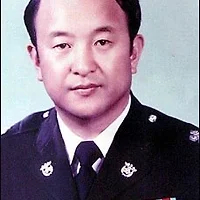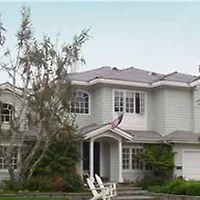China Hands by James Lilley
September 2005
China Hands: Nine Decades of Adventure, Espionage, and Diplomacy in Asia
by James Lilley with Jeffrey Lilley
=============================================================================================================
Chun Doo Hwan, a South Korean army general who had seized power in 1979 in a coup d'etat, was ruling in draconian fashion, massacring hundreds of students in the southern city of Kwangju and imprisoning the dissident leader Kim Dae Jung. In 1987, shortly after Lilley presented his credentials in Seoul, Chun's term in office was scheduled to draw to a close. Yet the military strongman was maneuvering to stay on, provoking hundreds of thousands of pro-democracy demonstrators to gather in the streets of the capital. Similar protests began to unfold throughout the peninsula; the demonstrators were no longer students, as in Kwangju, but a cross-section of the emerging middle class. The question on everyone's mind was: would Chun declare martial law and follow it with an even bloodier repetition of 1979?
In the middle of these dramatic events, the Reagan administration stepped in. Reagan had been an unapologetic supporter of Chun's regime as a bulwark against the aggressive Communist North, and Chun had been among the first foreign leaders invited to the White House following his election in 1980. Lilley himself courted Chun assiduously, opting controversially to attend a convention of the ruling Democratic Justice party that 60 other ambassadors were boycotting.
But when push came to shove, it was precisely this willingness to dirty his hands by embracing a friendly dictator that gave Lilley the necessary modicum of influence. As Chun clung to power, a letter from Reagan, hand-delivered by Lilley and accompanied by an unambiguous articulation of the U.S. position, had the desired effect. That very afternoon, Chun announced he would not impose martial law. Less than two weeks later, he astonished the world by accepting all of the opposition's demands, including direct election of the president and the release of Kim Dae Jung. With the U.S. serving as midwife, South Korean democracy, stable and today functioning smoothly for two decades, was born.
==========================================================================================================
'전두환 친인척 관련서류' 카테고리의 다른 글
| '삼호그룹 해체사연' 뉴욕타임스도 보도 (0) | 2009.11.18 |
|---|---|
| 미 하원, '삼호그룹 해체' 회의록에 기록 ['신군부에 돈 안줘서 뺐겼다'주장] (0) | 2009.11.17 |
| 안병화 전 전남도경국장 유족, 미국서 전두환-노태우등 11명 손배소 패소 [항소심 판결문] (0) | 2009.11.15 |
| 박상아 - 전재용 LA 집 팔려고 내놨다 [현재 텅빈 상태] (4) | 2009.09.25 |
| 박상아-전재용, LA에 2백30만달러짜리 하나 더 - 지금도 소유 (24) | 2009.09.19 |

